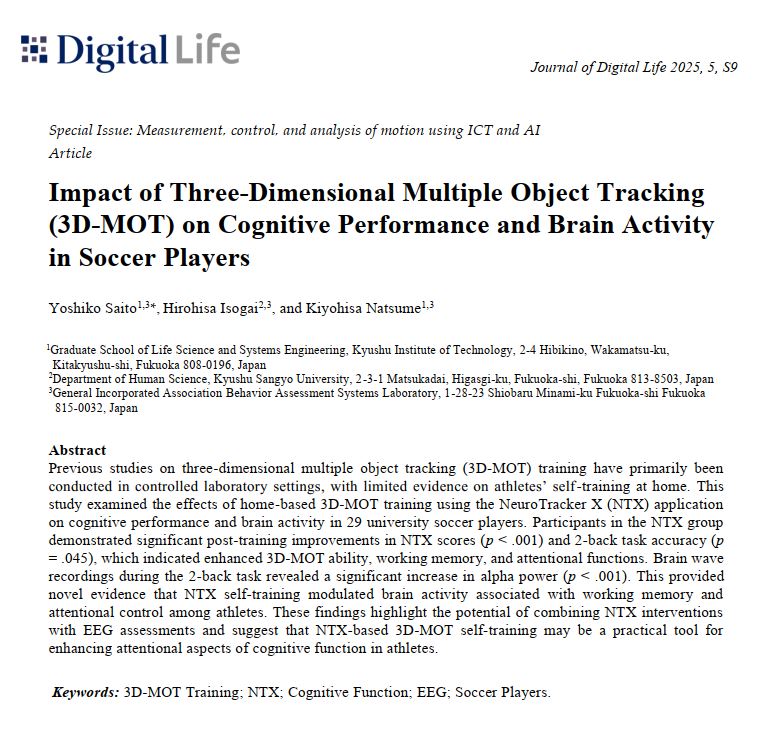Welcome to the Research and Strategy Services at in today's fast-paced.


On first sight NeuroTracker may look like there’s not much more to it than tracking targets bouncing around in 3D, however expert users know there’s a lot to learn to get the most out of this unique cognitive trainer. With a bit of practical know-how your training can be transformed from good to great, as well as extending the learning benefits to extremely high levels of performance. Check out our selection of recommended guides to help you or the people you train on the path to improvement.

The main result of a NeuroTracker session is a 'Speed Threshold Score', this is essentially a measure of your upper limit of visual tracking speed, sometimes referred to as 'VTS'.
This blog uncovers what this score represents, why Core baseline measures are important, as well as how the measure of NeuroTracker Learning Rate over multiple sessions provides a unique window in brain functions and neuroplasticity.
Read here.

The NeuroTracker Learning System is a patented training methodology for achieving optimal benefits from each and every NeuroTracker session on the path to improvement.
Backed by scientific studies and data insights from elite sports teams, this methodology uncovers the innate connections between brain and body, along with the best methods for developing performance specific skills under high cognitive load.
Read here.

Using video and photo examples, this blog illustrates different examples of how professionals apply NeuroTracker dual-task training methods across different human performance domains.
This follows the NeuroTracker Learning System, giving practical insights from basic balance tasks, through to integrating tactical awareness and decision-making drills.
Read here.

Blogs 4, 5, and 6 on our list are a 3-part series written by Maxime Chevrier. Maxime is a professor of clinical psychology and a highly experienced sports performance coach. His expertise in applying NeuroTracker training across the human performance spectrum spans over a decade.
Giving invaluable advice and insights on how coaches and trainers can get the most out of training with their athletes or clients, this first blog introduces the basics and how to get your coaching optimized from the get-go.
Read here.

Maxime's second part in the series takes things up a notch. Here he goes into detail on practical pointers for managing training hands-on, with tips on how to both guide and observe sessions.
Following on this he shares advice for interpreting data results, and gives sound guidance on how to deliver qualitative feedback to boost training motivation.
Read here.

In this third part, Maxime dives a little into the science behind advanced training programs and how best to leverage the principals of the NeuroTracker Learning System to keep reaping the benefits of training over time.
He then goes on to gives pointers on how best to progress dual-task training techniques for different performance needs, along with some insider tips for optimizing neurocognitive training loads to each individual's needs.
Read here.








Welcome to the Research and Strategy Services at in today's fast-paced.

A new controlled study shows that remote NeuroTrackerX training improved attentional performance and frontal alpha brain activity in university soccer players.

An explanation of a structured habit-building framework for cognitive routines, emphasizing consistency, accountability, and long-term sustainability.

From stereo-3D to adaptive speed thresholds, get the lowdown on what makes NeuroTracker tick.
.png)